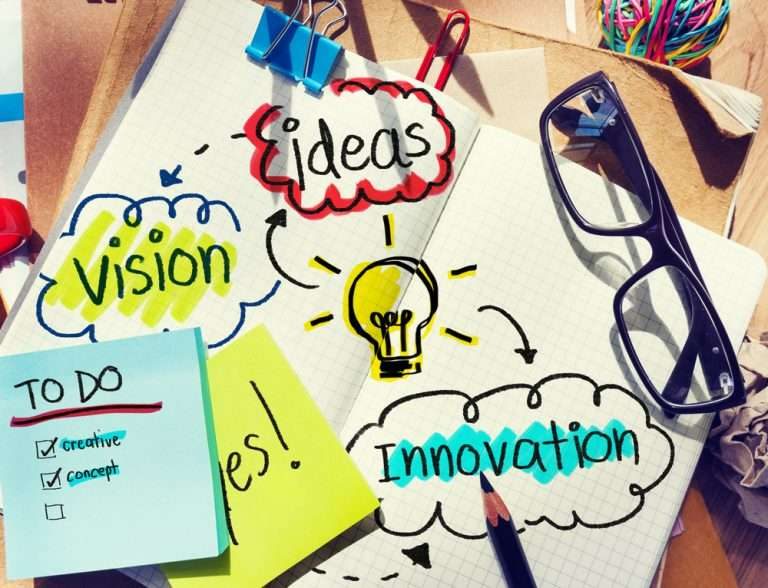You might not realize that a clean workspace can directly influence your productivity levels more than you think. When you walk into a tidy office, it not only boosts your mood but also enhances your ability to focus on tasks without the clutter competing for your attention. Partnering with https://stlouismaidservice.com/commercial-office-cleaning/ can help maintain that level of cleanliness consistently, allowing your team to thrive in a distraction-free space. This subtle shift could lead to improved creativity and teamwork. So, what role does cleanliness truly play in your everyday work performance, and how can you cultivate a cleaner environment that supports your goals?
The Psychological Benefits of Cleanliness
A clean workplace doesn’t just look good; it profoundly boosts your mental well-being. When you step into a tidy environment, you’re likely to feel more relaxed and focused. Clutter can create a sense of chaos, making it difficult to concentrate and leading to increased stress levels.
By maintaining cleanliness, you cultivate a positive atmosphere that enhances your mood and fosters creativity.
Moreover, the act of cleaning itself can serve as a mental reset. When you organize your space, you’re not just improving aesthetics; you’re also clearing your mind. This simple act can lead to a boost in productivity, allowing you to tackle tasks with renewed energy.
Research shows that a clean environment can substantially reduce feelings of anxiety and overwhelm. When everything has its place, you can easily locate what you need, which minimizes frustration and distractions.
Reducing Distractions and Clutter
Often, distractions and clutter can derail your focus and productivity. A disorganized workspace can lead to wasted time and increased stress. To combat this, start by decluttering your desk. Remove anything that isn’t essential for your daily tasks. Keep only the items you need within arm’s reach. This simple act can greatly enhance your concentration.
Next, establish a system for organizing documents and supplies. Use folders, trays, and labels to categorize items. Digital organization is just as important; regularly clean up your computer files and email inbox. A tidy digital workspace minimizes distractions and helps you find what you need quickly.
You should also consider the impact of your environment. Noise, visual distractions, and even unpleasant odors can hinder your focus. If possible, create a designated quiet area for deep work.
Noise-canceling headphones can also help block out distractions if you’re in a bustling office.
Enhancing Employee Morale
Creating a positive workplace atmosphere greatly boosts employee morale. When you maintain a clean and organized environment, it signals to your team that their well-being matters. A tidy workspace reduces stress and fosters a sense of pride among employees, which can lead to higher job satisfaction.
You’ll find that cleanliness enhances not just the physical space but also the emotional climate. Employees feel more comfortable and valued when their surroundings are pleasant. This encourages collaboration and communication, essential components for a thriving workplace. When everyone enjoys their environment, it fosters camaraderie, and that can translate into improved teamwork.
Moreover, a clean workplace minimizes health issues, reducing absenteeism. When your team feels healthy and safe, they’re more likely to be engaged and motivated. They’ll appreciate the effort you put into maintaining a clean space, which reinforces their commitment to your organization.
Boosting Focus and Concentration
Clutter-free desks and organized workspaces play an essential role in boosting focus and concentration. When your environment is tidy, it minimizes distractions, allowing you to direct your attention toward the tasks that matter. A clean workspace helps you think more clearly and makes it easier to prioritize your workload.
You mightn’t realize it, but the visual chaos of a disorganized desk can overwhelm your mind. Each item vying for your attention pulls you away from your primary objective. By maintaining an orderly space, you create a mental framework that fosters productivity.
Implementing simple organizational strategies, such as keeping essential items within reach and using labeled storage solutions, can greatly enhance your concentration. You might even consider adopting a daily cleaning routine to keep your workspace in top shape.
Additionally, a well-maintained environment signals professionalism and discipline, which can subconsciously influence your work ethic. When you feel good about your surroundings, you’re more likely to stay engaged and motivated.
Prioritize cleanliness in your workspace, and watch your focus and concentration soar, leading to improved productivity and overall job satisfaction.
Creating a Positive Work Environment
A tidy workspace not only enhances focus but also sets the stage for a positive work environment. When your surroundings are clean and organized, you’re more likely to feel motivated and engaged. Clutter can be distracting and overwhelming, which can lead to stress and decreased productivity.
To create this uplifting atmosphere, start by decluttering your desk. Remove unnecessary items and keep only what you truly need. Consider adding personal touches like plants or artwork that inspire you. These elements can greatly improve your mood and make your workspace feel more inviting.
Additionally, maintain a routine for cleaning. Regularly wipe down surfaces, organize files, and discard outdated materials. This sense of order not only improves your mental clarity but also fosters a culture of cleanliness among your coworkers.
Don’t underestimate the power of natural light and fresh air, either. If possible, arrange your workspace near windows or guarantee good ventilation.
These simple changes can elevate your overall well-being.
Establishing Healthy Habits
Establishing healthy habits can greatly boost your productivity and overall well-being at work. Start by incorporating regular breaks into your routine. Stepping away from your desk for just a few minutes can refresh your mind, reduce fatigue, and help you maintain focus throughout the day.
Next, prioritize hydration. Keeping a water bottle at your workspace reminds you to drink enough water, which enhances cognitive function and energy levels. Pair this with healthy snacks, like fruits and nuts, to maintain steady energy and avoid afternoon slumps.
Consider your workspace ergonomics as well. Adjust your chair, desk, and screen to promote good posture, which can prevent discomfort and improve concentration.
Regularly tidy your workspace, as a clean and organized environment can reduce distractions and foster a more productive mindset.
Lastly, set boundaries between work and personal time. Establishing a clear end to your workday helps prevent burnout.
Encouraging Team Collaboration
Team collaboration is essential for fostering innovation and achieving common goals in the workplace. When you encourage your team to work together, you create a dynamic environment where ideas flow freely.
Start by breaking down silos—ensure everyone knows their roles and how they contribute to the team’s objectives.
Establish regular meetings to share updates, brainstorm solutions, and celebrate successes. This keeps everyone aligned and engaged. Use collaborative tools like shared documents and project management software to streamline communication and track progress.
When your workspace is clean and organized, it naturally enhances teamwork. A tidy environment reduces distractions and allows for a more focused collaborative effort.
Encourage open communication by fostering a culture where team members feel comfortable sharing their thoughts and feedback. Recognize and reward collaborative efforts to motivate others to participate actively.
Lastly, set clear expectations about team collaboration while allowing room for creativity. This balance helps maintain productivity without stifling innovative ideas.
Implementing a Cleanliness Routine
Creating a cleanliness routine is crucial for maintaining an organized and productive workplace. Start by establishing daily, weekly, and monthly tasks that everyone can follow. Daily tasks might include tidying up desks, wiping down surfaces, and taking out the trash. Encourage team members to clean up after themselves to foster personal responsibility and collective accountability.
Next, designate specific times each week for deeper cleaning. This could involve vacuuming carpets, organizing shared spaces, and sanitizing high-touch areas. You might consider assigning these tasks to different team members to guarantee everyone is involved and feels ownership over the workplace environment.
Additionally, monthly clean-ups can focus on decluttering storage areas and disposing of items that are no longer needed. Use these sessions as opportunities to assess what materials and supplies are essential for productivity.
Conclusion
In the bustling world of work, a clean environment is like a well-tuned engine—fueling your productivity and creativity. By embracing workplace cleanliness, you’re not just tidying up; you’re cultivating a culture of focus and collaboration. As you establish routines and personal responsibility, you’ll see morale soar and distractions fade. Remember, a tidy workspace isn’t just a nice-to-have; it’s the foundation upon which success is built. So, roll up your sleeves and let’s get cleaning!
Guest writer


























